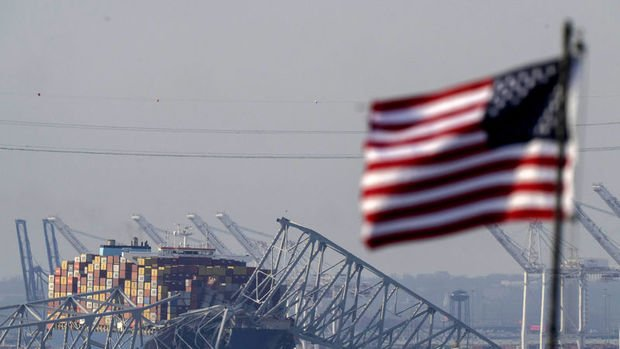Why is the shipwreck in the US important to the global economy?
bridge collapse in the US is expected to disrupt shipments of products ranging from cars to coal for weeks or even months. Economists say the impact on the economy could be limited if reconstruction efforts do not take too long. A 1.6-mile bridge was destroyed on Tuesday when a cargo ship crashed into the US city of Baltimore, Maryland, while the Port of Baltimore and a major highway were closed. Six people were reported dead as a result of the accident. The Singapore-flagged ship sent a distress call before the collision, preventing further losses. Baltimore handled only 3% of all East Coast and Gulf Coast imports in the year to January 31, according to S&P Global Market Intelligence. However, there are facilities in and around the port for European automakers including BMW AG, Volkswagen AG and Mercedes-Benz Group AG. It is also the second-largest terminal for coal exports in the US, and the closure has the potential to affect shipments to India. The accident is expected to disrupt transportation in the Mid-Atlantic region for weeks or even months, with up to 2.5 million tons of coal, hundreds of cars made by Ford and GM, lumber and gypsum facing logistical bottlenecks, with shipments expected to be diverted to the U.S. West Coast. Ford Motor Co. and General Motors Co. have also announced that they are working on alternative routes. “This is a big port with a lot of flow, so there will be an impact. We will be working on workarounds. We will have to reroute parts to other ports on the East Coast or other parts of the country,” Ford Chief Financial Officer John Lawler told Bloomberg TV. The shipwreck’s potential impact on the global economy The aftermath of the bridge collapse has highlighted how fragile global supply chains are, already strained by drought in Panama and missile attacks by Yemen-based Houthi militants on ships crossing the Red Sea. “Ocean shipping services from the Far East to the US East Coast have already been affected by droughts in the Panama Canal and recent clashes in the Red Sea. These factors have already increased costs by 150%, and this latest incident will now escalate concerns,” said Emily Stausbøll of Oslo-based shipping analyst firm Xeneta. “I expect the macroeconomic consequences to be limited but will require close monitoring,” said EY Chief Economist Gregory Daco, while Mark Zandi, Chief Economist at Moody’s Analytics, said the broader economic impact would be limited but was “another signal of the fragility of the country’s infrastructure and supply chains.” “The more lasting economic impact would be if traffic around the Baltimore area were to be disrupted for an extended period until the bridge is rebuilt,” said Stephen Stanley, Chief Economist at Santander US Capital Markets LLC.


